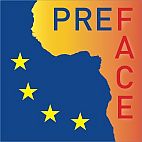WP9: Tropical Atlantic variability on seasonal and longer time scales and its global impacts
Lead: Elsa Mohino (UCM, Spain)
Main Objective:
The main goal of WP9 is to improve our understanding of tropical Atlantic variability (TAV) and its impacts through the analysis of observational data and climate model simulations.
Specific Objectives:
- To analyse the origin, development and impacts of Atlantic interannual modes of variability, including the two-way Atlantic-Pacific relationship.
- To understand the long-term variations in the TA addressing the relative roles of external forcings and internal variability.
Explore our output section for more.
Partners involved:
- UiB, Norway
- CERFACS, France
- UPMC, France
- GEOMAR, Germany
- BSC (formerly IC3), Spain
- UCM, Spain
- UCT, South Africa
- UNN, Nigeria
WP10: Statistical methods to assess and improve forecast of tropical Atlantic variability
Lead: Angelo Rubino (UNIVE, Italy)
Main Objective:
Model systematic errors of both background state and variability strongly limit the predictive skills of state-of-the-art dynamical climate models in the tropical Atlantic (TA) region. Sparseness of existing in situ data, together with limited model resolution often do not allow for an extraction of valuable information on state and variability of the ocean/atmosphere and related biogeochemical quantities. WP10’s main goal is to improve TA climate prediction through the development of a unifying statistically-oriented framework.
Specific Objectives:
- To develop a Bayesian hierarchical modeling strategy to re-calibrate forecasts and improve prediction of TA variability (TAV) and its impact.
- To develop a statistical scheme to predict sea surface temperature (SST) anomalies in remote regions associated with TAV.
- To assess the ability of state-of-the-art climate models (CMIP5) to reproduce climate variations over the TA Sector (including surrounding continents) over the 20th century.
Explore our output section for more.
Partners involved:
- UiB, Norway
- UNIVE, Italy
- BSC (formerly IC3), Spain
- UCM, Spain
- UCAD, Senegal
WP11: Impact of model improvement and systematic error reduction on climate prediction and projection
Lead: Virginie Guemas (BSC-CNS, Spain)
Main Objective:
WP11 will quantify the impact of the PREFACE model improvements (CT3) and bias correction techniques in climate predictions and long-term projections. The assessment will include an assessment of the reliability of the climate simulations to provide the most reliable information to CT5. The link between model error improvement and forecast quality of the West African monsoon will also be investigated.
Specific Objectives:
- To quantify the impact of the both model improvement and bias correction techniques (CT3) on climate predictions and long-term projections.
- To assess the reliability of the latest climate information available to PREFACE to provide the most reliable information to CT5.
- To investigate the link between model error improvement and climate predictions of the West African monsoon.
Explore our output section for more.
Partners involved:
- UiB, Norway
- UCPH, Denmark
- CERFACS, France
- MF-CNRM, France
- WUR, The Netherlands
- UniRes, Norway
- BSC (formerly IC3), Spain
- UCM, Spain
